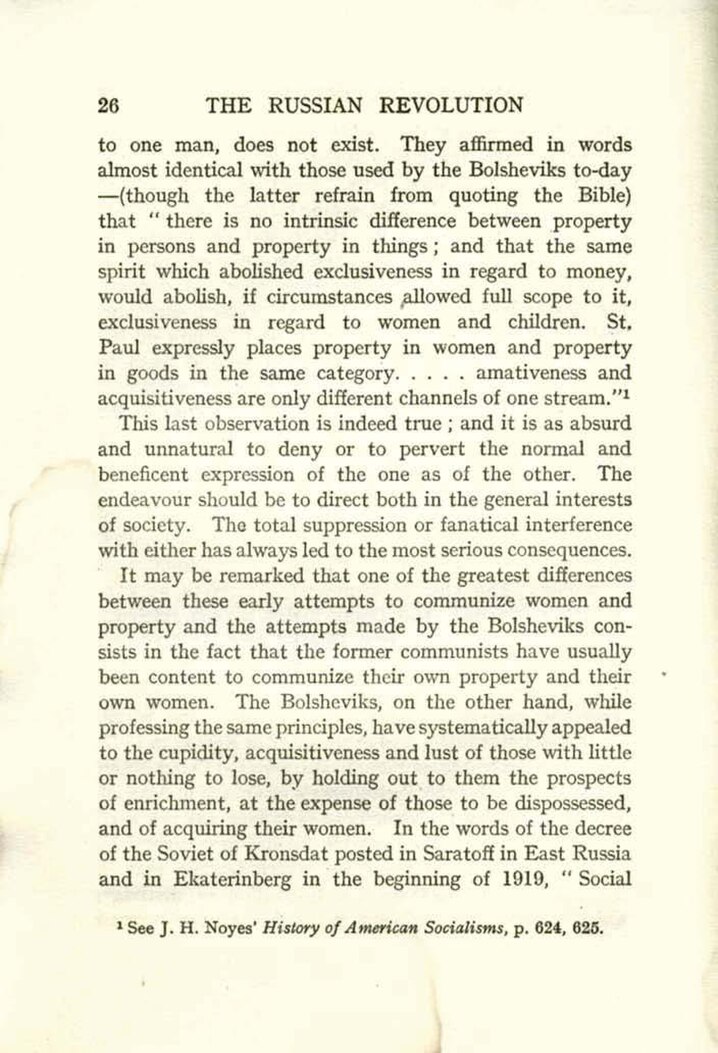to one man, does not exist. They affirmed in words almost identical with those used by the Bolsheviks to-day—(though the latter refrain from quoting the Bible) that "there is no intrinsic difference between property in persons and property in things; and that the same spirit which abolished exclusiveness in regard to money, would abolish, if circumstances allowed full scope to it, exclusiveness in regard to women and children. St. Paul expressly places property in women and property in goods in the same category. … amativeness and acquisitiveness are only different channels of one stream."[1]
This last observation is indeed true; and it is as absurd and unnatural to deny or to pervert the normal and beneficent expression of the one as of the other. The endeavour should be to direct both in the general interests of society. The total suppression or fanatical interference with either has always led to the most serious consequences.
It may be remarked that one of the greatest differences between these early attempts to communize women and property and the attempts made by the Bolsheviks consists in the fact that the former communists have usually been content to communize their own property and their own women. The Bolsheviks, on the other hand, while professing the same principles, have systematically appealed to the cupidity, acquisitiveness and lust of those with little or nothing to lose, by holding out to them the prospects of enrichment, at the expense of those to be dispossessed, and of acquiring their women. In the words of the decree of the Soviet of Kronsdat posted in Saratoff in East Russia and in Ekaterinberg in the beginning of 1919, "Social
- ↑ See J. H. Noyes' History of American Socialisms, p. 624, 625.
